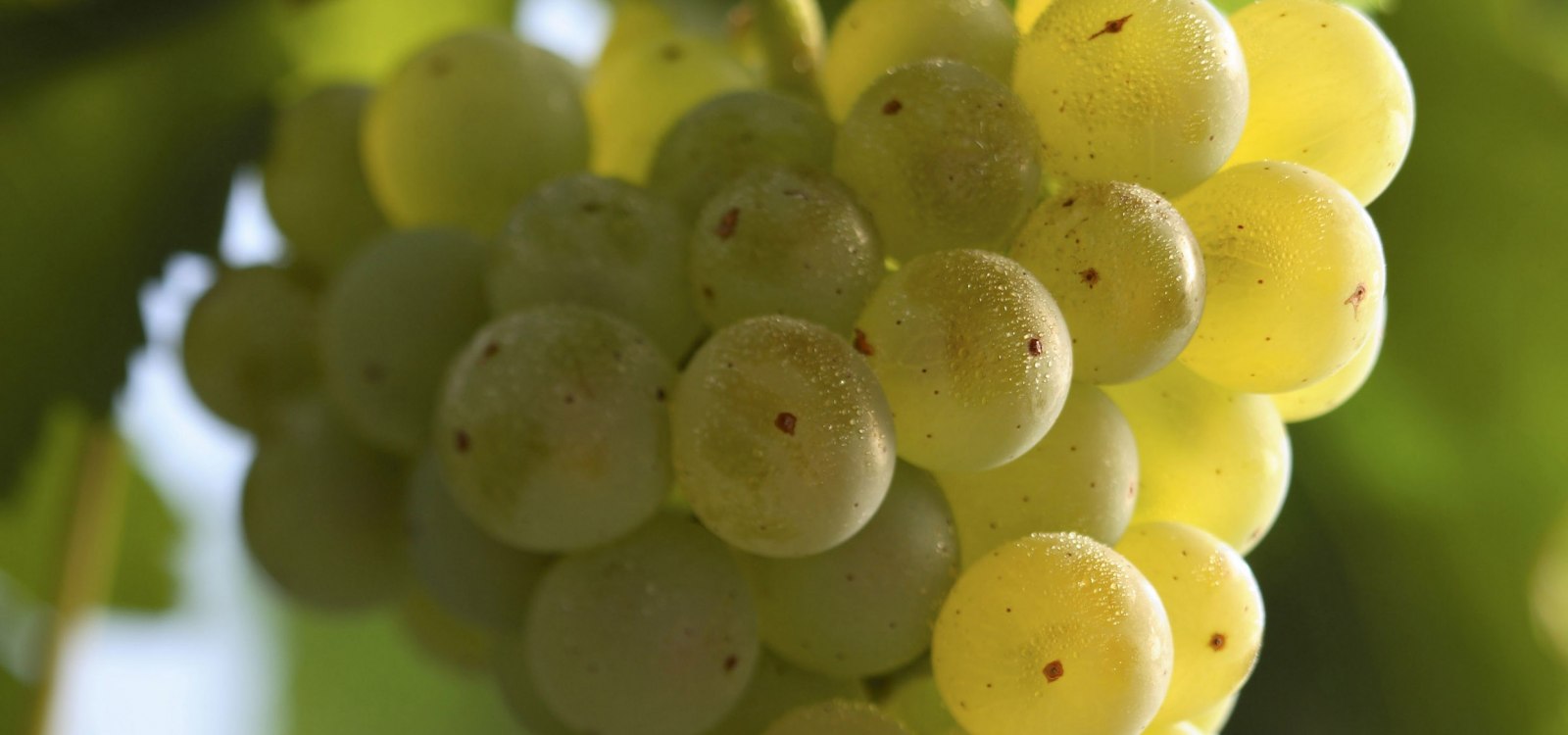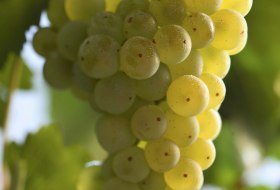This is how wine journalist Stuart Pigott characterizes this Rheinhessen grape variety. The varietal aroma reminds of blackcurrant (Cassis). The noble sweet varieties are characterized by a long durability and after years of aging, they show an impressive peach aroma or an intense rose scent.
When it comes to the location, Scheurebe is almost as demanding as Riesling. It tolerates dry, barren soil, but also copes well with loess soil and with calcareous soils, as these are widespread in Rheinhessen.
Dry Scheurebe estate wines are in vogue. Especially young winegrowers use Scheurebe to show their origin, leaving the impression that the variety is reinventing itself. All of this happening in Rheinhessen is only logical, as, with 707 hectaes, this is the largest Scheurebe area in Germany.
A bit of history: During World War I, the vine grower Georg Scheu succeeded in breeding the new Scheurebe with his 88th seedling during a crossbreeding series. In this confusing relationship box, Riesling played a main role as the mother and after lengthy paternity tests, the Bukettrebe (Silvaner x Trollinger) could be identified as a partner. The SWR wine expert Werner Eckert adds the following to the historical narrative: "In 1936, the variety was first called Dr. Wagner vine - after a Nazi peasant leader - but after 1945, this name was out of question. It was not until 1956 that it was named after its breeder "Scheurebe". Inbetween it was called "Sämling 88" (seedling 88) ".
Georg Scheu, a native of Krefeld, had gained his first wine experience in Geisenheim prior to his involvement in Rheinhessen and somehow never really grew to like the acidic Rieslings that were so popular in the area. Therefore, as a vine grower, he targeted fruity and aromatic varieties. "The audience does not like it. We have to make what the wine drinker wants! "Georg Scheu formulated his dream and set to work.
Georg Scheu was not a scientist far from reality, he was with the people: he was in the vineyards and visited the winemakers in their cellars. He was far more than a vine grower. His professional and viticultural advice was groundbreaking in Rheinhessen.
Georg Scheu was a fine spirit, he was creative and musically. He liked dancing and drawing and he regularly choreographed and practied dances with the girls from Alzeyer Land. The wild 20s actually did take place in Alzeyer Land. Pictures from that time show Scheu with his ascetic habit in the middle of the girls from Alzey.
Scientist, vine grower, viticulture consultant, painter and choreographer - multitasking 100 years ago - Georg Scheu showed how to do it and how to live it.
Scheurebe, his greatest achievement as a vine grower, is experiencing a wonderful renaissance 100 years after its birth. This pleases not only winemakers and wine lovers, but also opens doors for new culinary experiences in gastronomy. Dry or off-dry Scheurebe wines are recommended as a companion to aromatic and spicy ragouts of fish and poultry, especially from the Asian cuisine. Noble sweet Spätlese or Auslese match fruity deserts and ceeses.


